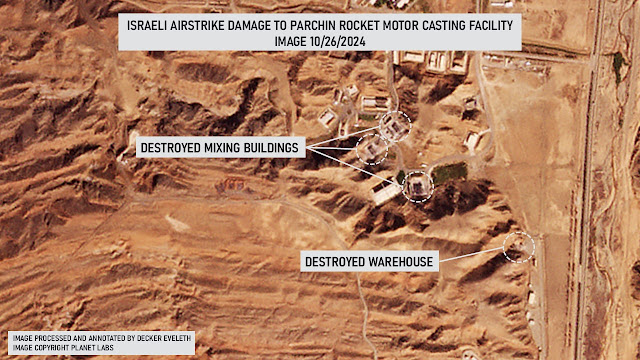Western Leaders Should Be Thankful to Israel
At a bleak time in global affairs, a powerful blow has been struck against the most malign regime in the Middle East. On Friday night the Israel Defense Forces (IDF) conducted a measured, precise but devastating aerial assault on Iran. It was a proportionate response to Iran's missile attack on Israel, and civilian casualties were kept to a minimum.Israeli Strike Could Create Deterrence
Israel has reminded allies and enemies alike of just how formidable its military capabilities are. The IDF has established air superiority over Iran and can destroy its military infrastructure with virtual impunity. Having already decapitated Hamas and Hizbullah, Israel has demonstrated that it could do the same to their masters in Tehran at a time of its choosing.
While Europe and America have sought to bully Israel into ceasefires, the IDF has methodically set about eliminating the terrorist threat on its border, while checking Iranian power and influence.
Israel has apparently inflicted severe damage on Iran's air defense systems. It is reasonable to assume that they were significantly impaired in the initial wave of attacks, given that the Iranians barely intercepted any missiles or Israeli fighter jets. With its air defenses neutralized in several critical areas, Iranian leaders will have to carefully consider whether to launch a strong attack on Israel and risk a counter-response they cannot stop.Israel's Strike on Iran
The Israeli strike was deliberately designed to offer the Iranian regime the option to avoid retaliation. The IDF spokesperson explicitly stated the strike was "focused," and Israel has no interest in prolonging the exchange of blows.
The Israeli strikes aimed to achieve a tangible impact on Iranian military capabilities, a clear signal to the regime that it is exposed and vulnerable, which strengthens deterrence, and a severe blow to its prestige in the eyes of its citizens, all while carefully giving Tehran a "ladder to climb down from the tree," providing a justification to halt the cycle of retaliation. Neither Israel, the U.S., nor Iran currently desires a regional war.
The strikes on facilities for the development and production of surface-to-surface missiles and rocket engines were carried out around 2:00 a.m., when no civilians were present. Attacks in Ilam and Khuzestan provinces targeted surface-to-surface missile launch facilities and arrays, from which ballistic missiles were launched at Israel in the two previous Iranian attacks.
Israel destroyed Iran's air defense systems, leaving the country vulnerable to repeated Israeli Air Force strikes. These systems, of Russian origin, also demonstrate the superiority of Western weapons over Eastern ones. Given that Russia needs these systems for its war against Ukraine, it's questionable whether Russia will agree to sell additional systems to Iran.
Israel's offensive capabilities surpass Iran's defensive capabilities, revealing Israel's clear operational superiority over Iran. Israel managed to strike all of its intended targets, while Iran did not.
In deciding whether to escalate, Khamenei must consider key factors: Does Iran have enough missiles to sustain a prolonged campaign against Israel, given that production has been disrupted? Could Israel's next strike target energy and nuclear facilities? No response would signify an historic weakness, while a response would allow Israel to strike where it truly hurts. All this is happening as Hizbullah is weakened and no longer serves as a restraining force on Israel.








































